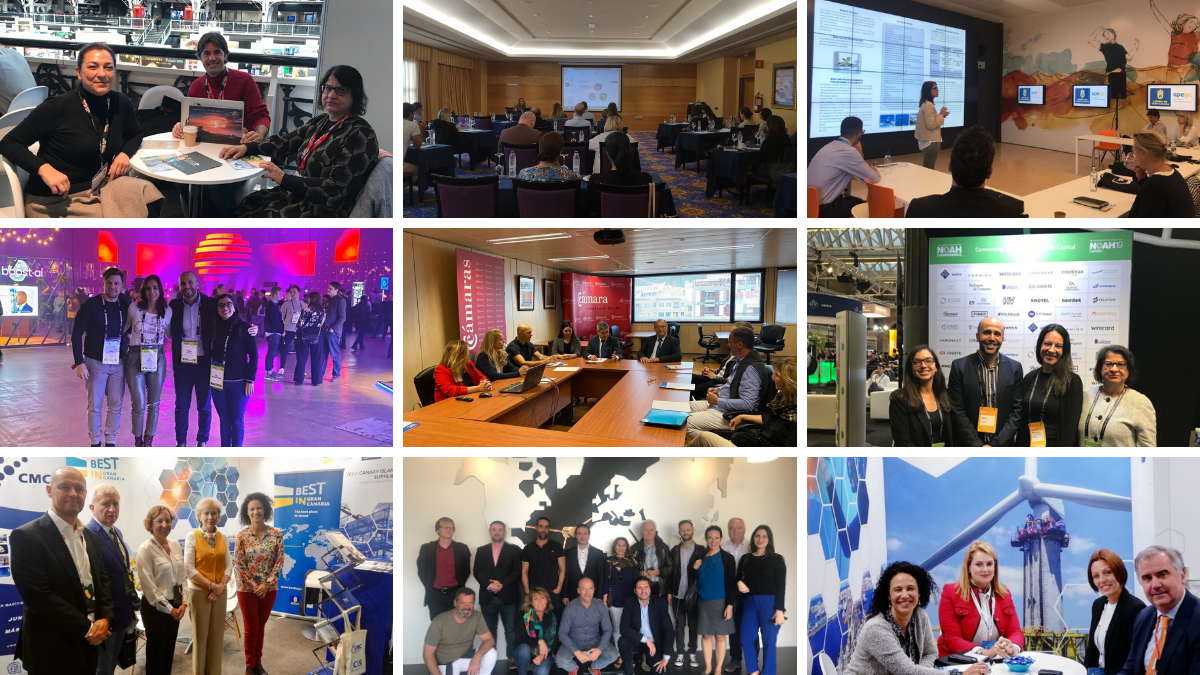The Canary Islands.- The potential of the Canary Islands Special Zone (ZEC), which offers a special 4% corporate tax rate, the distribution of dividends without withholding tax and the maximum accumulation of aid authorised by the European Union (EU), has boosted the inflow of foreign capital from forty countries within the framework of the ZEC. This business investment is the result of the work carried out as part of the international promotion strategy where taxation plays a fundamental role as an added value in the promotion of the Canary Islands as an ideal destination for doing business in a territory within the Member States, providing an excellent geostrategic situation for business expansion towards international markets.
Last year, the 611 companies in the Official Entity Registry of the ZEC (ROEZEC) committed an investment of 1,031,305,666.40 euros in the Canary Islands, a sum that represents 55 % of the total capital. The closure of this year is still pending, but the entity’s annual Action Plan has included an additional planning specifically aimed at the British market, which will close this year’s activity programme. Its strategy has mainly focused on a more intense international projection of this taxation regime aimed at key markets and sectors for the creation of quality employment and the diversification of the regional productive fabric. The operational benefits offered are applicable to those companies that establish and develop their economic activity in the Canary Islands; and in exchange for these advantages and the reduced taxation, the companies must contribute to diversifying the island’s economic activity and are required to generate employment and investment.
Under the Promotion Plan 2014-2020 approved by the Governing Council, a document which is review on an annual basis to determine on which countries and sectors activities must focus, the international actions planned for 2019 and carried out have been aimed mainly at markets with potential such as the United States, London, Germany, Sweden, France, Poland and Denmark, among others. In addition, it also included specific initiatives for reverse and sector-specific trade missions to consolidate business ecosystems in the fields of information and communication technologies (ICTs), technology and innovation, outsourcing and business services, renewable energies, activities related to the naval industry; and services linked to tourism-support activities, among others.
Regarding steady flows, it is important to remember that the ZEC closed the year 2018 with a total of 144 authorised business projects which undertook to create 1,440 jobs and invest 196 million euros. Among these, the most outstanding subsectors of activity were ICTs, wholesale-commercial mediation and the audiovisual sector. These activities are becoming more and more attractive for the influx of capital and the promotion of investments in the Canary Islands. 96% of these projects were participated by foreign capital. Regarding the origin of these capitals, the most relevant countries were Italy, Germany, the United Kingdom, the United States and Switzerland, although foreign capital came from 23 countries in total.
With regard to registrations of companies that develop their economic activity in the Canary Islands, 2018 closed with a total of 86 companies, which committed to create 818 jobs and an investment of 100 million euros. The most representative sub-sectors were: ICTs, wholesale-commercial mediation, tourism-related activities, transport and its related activities. In these sectors, 80% of the capital comes from abroad. With respect to the foreign capital of the registered companies, the investments of Italy, United Kingdom and Germany were especially significant. Among these, foreign capital came from 15 countries, mainly from within Europe.

